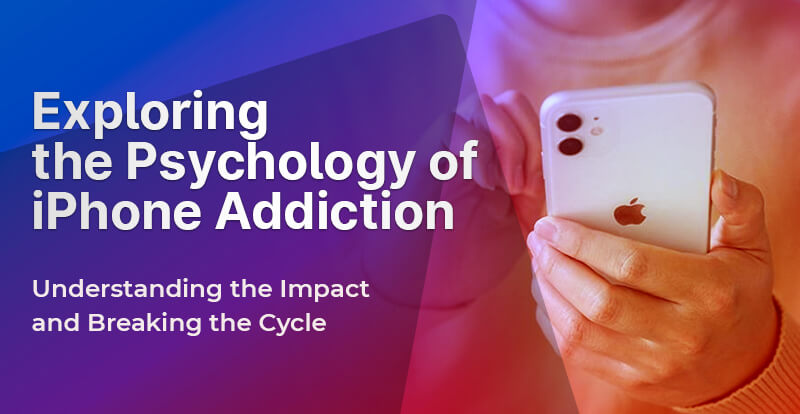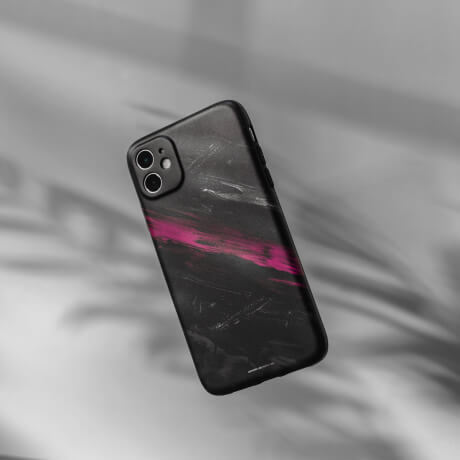Exploring the Psychology of iPhone Addiction: Understanding the Impact and Breaking the Cycle

We live in a digital age where smartphones have become an integral part of our daily lives. Among these devices, the iPhone has gained immense popularity due to its sleek design, powerful features, and user-friendly interface. However, with this increased connectivity and convenience comes the risk of addiction. Let’s delve into the psychology of iPhone addiction, examine its impact on individuals, and explore strategies to break the cycle.
Understanding iPhone Addiction
We become more dependent on our iPhones. However, the allure of this powerful device can sometimes lead to an unhealthy obsession that negatively impacts our well-being. To strike a healthy balance between technology and our offline lives, we must understand the addictive nature of these devices.
- Dopamine and the Reward System
One of the key factors driving iPhone addiction is the release of dopamine, a neurotransmitter associated with pleasure and reward. Every notification, social media like, or message received triggers a small dopamine release, creating a cycle of seeking gratification through phone use.
- Fear of Missing Out (FOMO)
The fear of missing out on relevant information or social experiences can fuel iPhone addiction. Social media platforms and messaging apps constantly provide updates, making individuals check their phones regularly to stay connected.
- Escapism and Instant Gratification
IPhones offer a multitude of distractions, from addictive games to endless scrolling through social media feeds. By providing instant gratification and serving as a temporary escape from boredom or stress, these activities can become a coping mechanism.
Impact of iPhone Addiction
The impact of iPhone addiction extends beyond individual well-being, permeating societal dynamics as a whole. As people become increasingly absorbed in their screens, social interactions and interpersonal connections suffer, potentially resulting in a decline in empathy and meaningful human connection. Here are some detrimental effects of iPhone addiction:
- Mental Health Effects
Excessive iPhone use has been linked to various mental health issues such as anxiety, depression, and sleep disturbances. Constant exposure to curated social media content can contribute to inadequacy and low self-esteem.
- Impaired Relationships
iPhone addiction can strain personal relationships as individuals may prioritize screen time over spending quality time with loved ones. As a result of constantly relying on the virtual world for validation and attention, you may neglect real-life interactions. This could eventually lead to a feeling of isolation and loneliness.
- Decline in Productivity
When you use your phone excessively, you are likely to lose productivity, both at work and at home. Frequent interruptions and distractions hinder focus and concentration, leading to reduced efficiency and performance.
Breaking the Cycle
It’s time to break free from iPhone addiction and reclaim your autonomy. If you are aware, determined, and apply practical strategies, you can regain control over your digital habits and develop a more mindful and intentional relationship with your iPhone. Follow these tips to break the pattern:
- Awareness and Mindfulness
Recognizing and acknowledging your iPhone addiction is the first step toward breaking the cycle. Practice mindfulness of phone usage by setting intentional limits on screen time and being aware of the underlying motivations driving your phone use.
- Create Phone-Free Zones and Time Blocks
Designate specific areas or time periods where phone use is prohibited. When you communicate with a device in a healthy manner, you should establish boundaries, such as keeping your phone out of the bedroom or turning off notifications during work hours. It will help you create time blocks successfully.
- Find Alternative Activities
Discovering alternative sources of satisfaction reduces phone dependence. Engage in activities that provide fulfillment and enjoyment outside the digital realm. Pursue hobbies, exercise, spend time with loved ones, or explore nature.
- Utilize Digital Well-being Features
Take advantage of digital well-being features on your iPhone. Set app limits, schedule downtime, and use screen time tracking tools to gain insights into your usage patterns. This will encourage healthier habits.
Seek Support
If breaking the cycle of iPhone addiction becomes challenging, you must seek support from friends, family, or professionals. Therapists, support groups, or smartphone addiction apps can provide guidance, accountability, and strategies to overcome addiction.
Understanding the psychology behind iPhone addiction is crucial for combating its negative impact on our lives. A healthier and more fulfilling life in the digital age can be achieved by prioritizing mental health, cultivating meaningful relationships, and finding a balance between the real and virtual worlds. By recognizing the underlying factors contributing to addiction, you can take proactive steps to break the cycle and regain control over your phone usage.
If you’re facing any issues with your iPhone or need reliable mobile repair services, connect with Buzzmeeh. Our experienced technicians are here to assist you with your iPhone screen repair and ensure it functions optimally. Break free from your iPhone addiction and let Buzzmeeh take care of your device! Reach out to us today!
Published By Buzzmeeh Doorstep Repair Service Provider







